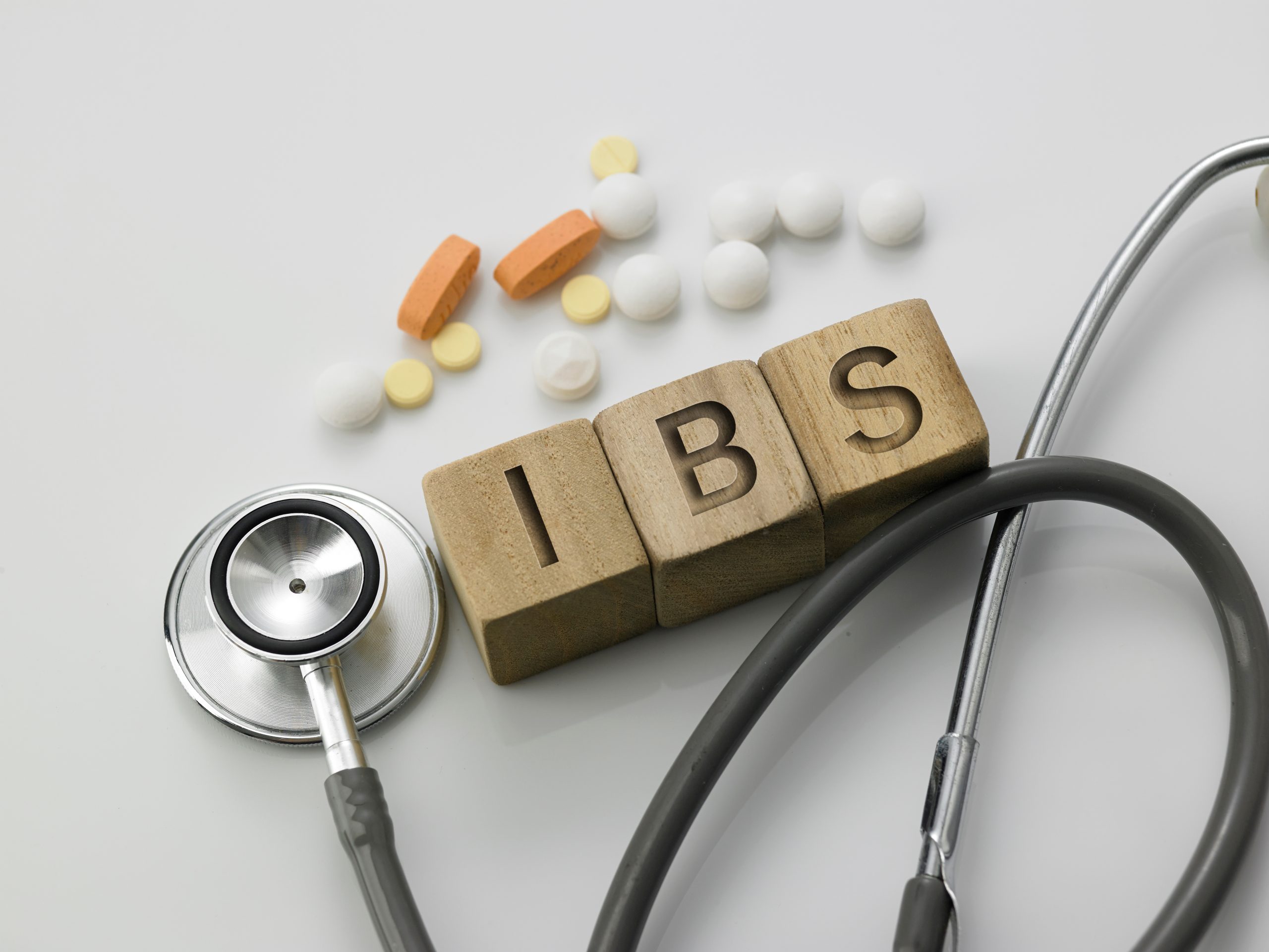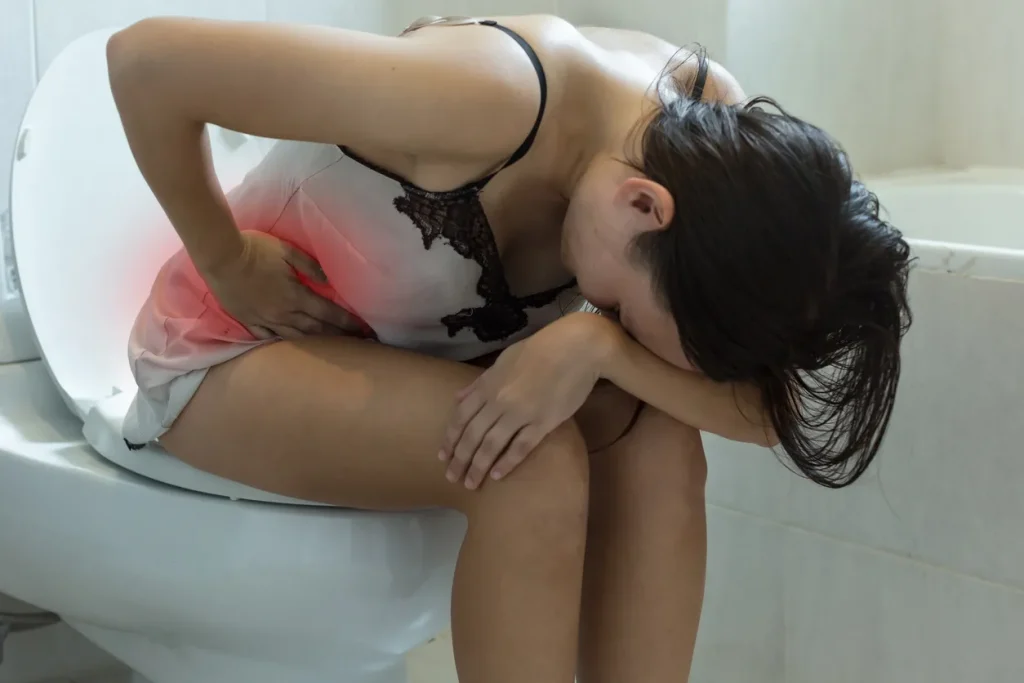Irritable Bowel Syndrome (IBS) is a chronic digestive condition that affects the GI tract, causing discomfort, pain, and irregular bowel movements. While it can be challenging to manage, there are a variety of therapies, medications, and lifestyle changes that can help alleviate symptoms and improve the quality of life.
IBS is a complex condition with no single treatment that works for everyone—therapies for IBS focus on relieving symptoms like abdominal pain, bloating, diarrhea, and constipation. The most effective therapies usually involve a combination of medications, natural remedies, and lifestyle changes. Because IBS is often triggered by food, stress, or gut sensitivity, finding the proper treatment may require a personalized approach that addresses your specific symptoms.
What Medications Are Available for IBS?
Several medications are commonly used to manage IBS symptoms, depending on whether diarrhea, constipation, or a combination of both is the main issue.
- Antispasmodics: These medications, such as dicyclomine, help reduce abdominal pain and cramping by relaxing the gut muscles.
- Anti-diarrheal medications: Loperamide (Imodium) is commonly used to slow down bowel movements and reduce diarrhea for people with IBS-D (diarrhea-predominant IBS).
- Laxatives: For those with IBS-C (constipation-predominant IBS), fiber supplements or laxatives like polyethylene glycol (Miralax) can help promote regular bowel movements.
- Probiotics: Probiotic supplements can restore balance to the gut bacteria, which may help alleviate bloating, gas, and other digestive symptoms associated with IBS.
- Prescription medications: In more severe cases, doctors may prescribe lubiprostone or linaclotide, which helps relieve constipation, or rifampin, an antibiotic used to reduce IBS-D symptoms.
- Anti-histamines: Patients with IBS have been shown to have increased Histamine receptors in their GI system and may benefit from blocking these receptors with specific ratios of certain antihistamines.
How Can I Manage IBS Symptoms Effectively?
IBS is often a lifelong condition, but with the right management strategies, it is possible to control symptoms and lead a more comfortable life. One of the most effective approaches to managing IBS is identifying and avoiding personal triggers. These triggers often include specific foods, stress, and other lifestyle factors.
As stated previously, food is a well-recognized trigger. Dietary adjustments, such as reducing fat intake, avoiding processed foods, and staying hydrated, can significantly improve digestion and prevent flare-ups. Keeping a food diary is a helpful way to track what foods trigger symptoms and make adjustments accordingly. Foods high in fat, caffeine, alcohol, and spicy foods often exacerbate IBS symptoms. Increasing fiber intake is essential for those with IBS-C to promote regular bowel movements. On the other hand, those with IBS-D should avoid high-fiber foods that can worsen diarrhea.
Dietary management, such as following a low FODMAP diet, can also significantly reduce symptoms. This diet eliminates certain carbohydrate types that are difficult to digest and may cause bloating, gas, and diarrhea. Foods like onions, garlic, and certain fruits are high in FODMAPs and can trigger IBS symptoms in many people.
In addition to dietary changes, stress management is crucial. Stress is a common trigger for IBS, so stress management techniques are highly beneficial. Techniques like yoga, meditation, and deep breathing exercises can help reduce the stress that often aggravates IBS. Regular exercise also supports digestive health and can help alleviate constipation. Practices like these can reduce stress and its impact on the digestive system.
Studies have shown that sleep disturbances can increase gut sensitivity and aggravate symptoms. Poor sleep increases stress and anxiety levels, while better sleep helps lower these factors. Improved sleep supports a healthier immune response and may reduce gut inflammation, reducing symptom severity. Good sleep positively affects mood, energy levels, and mental clarity. These improvements can help individuals with IBS stay motivated to adhere to treatment plans, make necessary lifestyle changes, and maintain a positive outlook on managing their condition.
Natural Remedies for Irritable Bowel Syndrome
Several remedies and alternative treatments can provide relief from symptoms for those seeking a more natural approach to managing IBS. These natural therapies focus on improving digestion and reducing the discomfort associated with IBS.
Are There Natural Remedies for IBS Relief?
Natural remedies can play a crucial role in managing IBS, particularly for individuals who prefer to avoid long-term medication use. Some popular natural treatments include:
- Peppermint oil: This remedy is widely used to relieve IBS symptoms, particularly abdominal cramping. Its antispasmodic effect helps relax the digestive tract muscles.
- Ginger: Known for its anti-inflammatory properties, ginger can help soothe the digestive system and reduce bloating and nausea associated with IBS.
- Chamomile tea: Chamomile has soothing properties that can help relieve bloating and ease stress, often triggering IBS.
- Fiber supplements: Soluble fiber supplements like psyllium husk help regulate bowel movements and are effective for IBS-C and IBS-D.
- Probiotics: Consuming probiotic-rich foods like yogurt, kefir, and sauerkraut, or taking supplements, can help balance gut bacteria and improve digestion.
What Are the Latest Treatment Options for IBS?
Research into IBS treatments is ongoing, and new therapies are continuously emerging. In recent years, treatments like cognitive-behavioral therapy (CBT) have shown great promise in helping individuals manage the psychological aspects of IBS. CBT helps patients identify and change negative thought patterns that may be contributing to stress and IBS symptoms.
Additionally, gut-directed hypnotherapy is another emerging therapy focusing on reducing the connection between the brain and gut to alleviate symptoms. This therapy has been shown to reduce the severity of IBS symptoms in some individuals.
Histamine blockade is a new mechanism of treatment that has shown great promise. Many patients are seeing dramatic improvement in their IBS symptoms by appropriately blocking the histamine pathway.
There is Help and Hope Out There
Managing Irritable Bowel Syndrome can be challenging, but with the right combination of therapies, medications, and lifestyle adjustments, it is possible to lead a more comfortable and symptom-free life. Whether you prefer traditional drugs or natural remedies, understanding your triggers and focusing on long-term management strategies is vital to effectively managing IBS. Always consult a healthcare provider to develop a treatment plan tailored to your needs and stay informed about the latest advancements in IBS therapies.
Looking for fast and effective relief for your digestive discomfort? Visit Get Relief Rx today to explore proven solutions designed to ease your symptoms and improve your gut health. Click here to start feeling better now!




